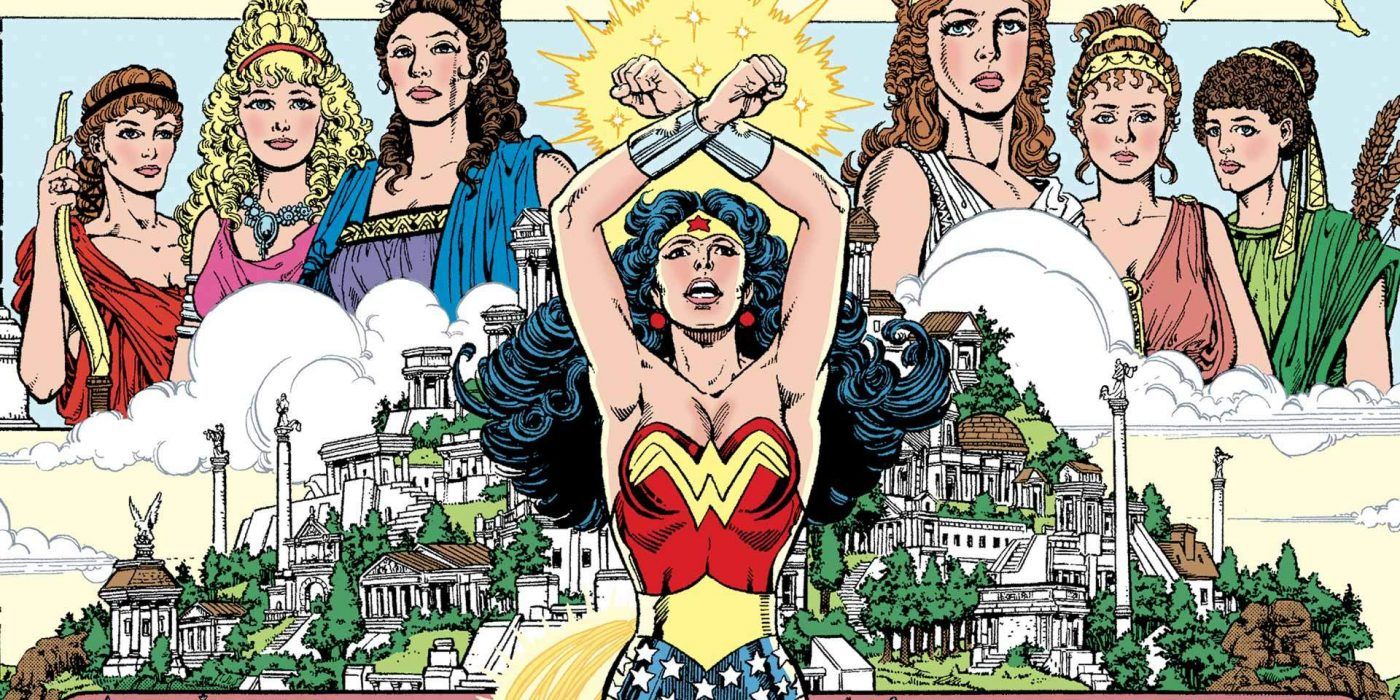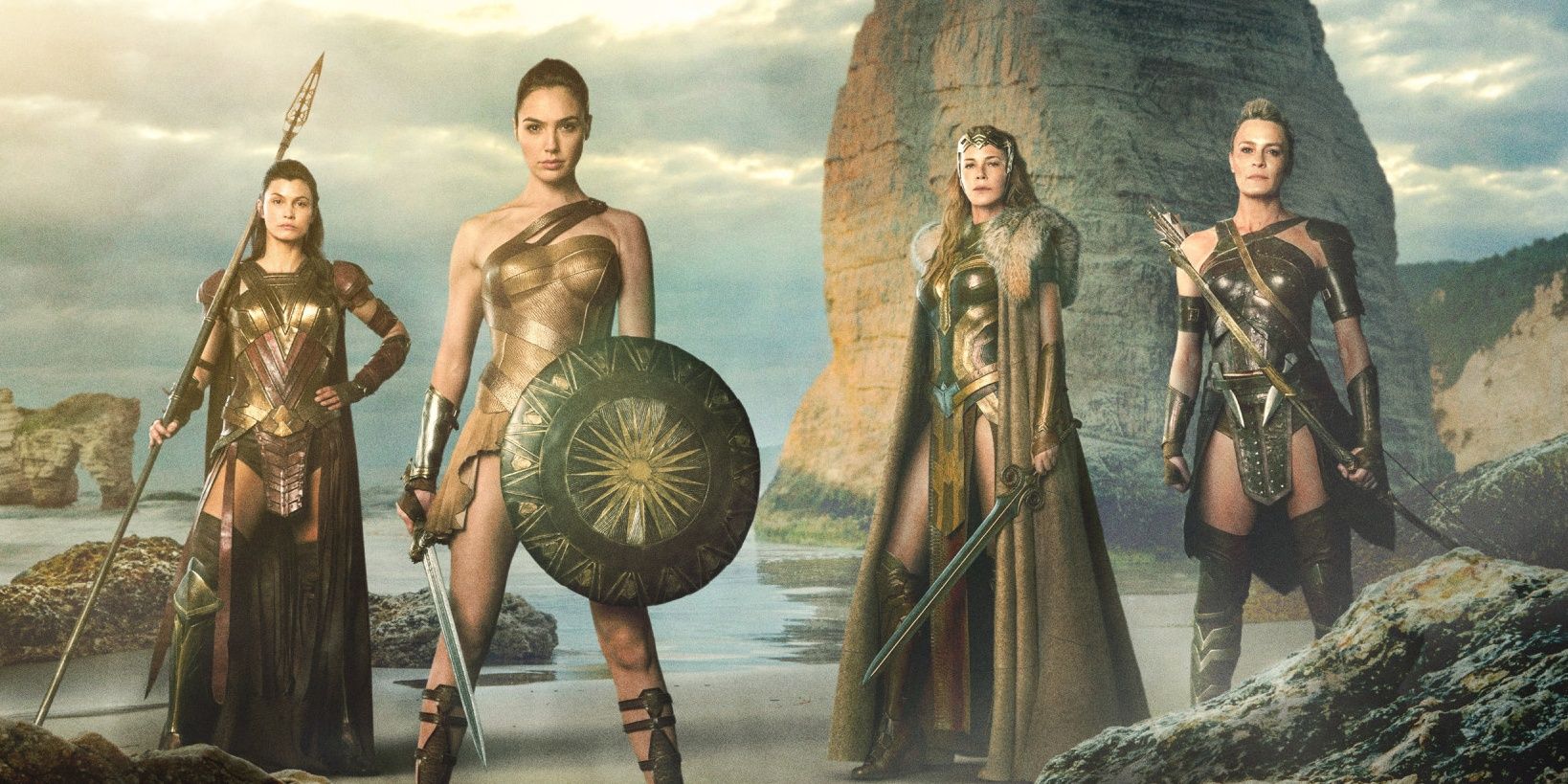Wonder Woman has more than 75 years of comic book history, since her first appearance in 1948's "All-Star Comics" #8 by William Moulton Marston and Harry G. Peter. Many celebrated creators have made their mark on the character since, but one of the most enduring contributions remains that of writer-artist George Pérez, who took over DC Comics' "Wonder Woman" series in 1987 after the reboot brought about by "Crisis on Infinite Earths."
During his five-year run on the title, Pérez streamlined the character's history but increased the role of the Greek gods in the Wonder Woman mythos. Pérez's tenure was undoubtedly influential, on fans including Patty Jenkins -- the director of Warner Bros.' upcoming "Wonder Woman" feature film. In public comments, Jenkins has cited Pérez's work as a major reference point for the film, which is set to tell the live-action origin of Wonder Woman, after Gal Gadot's first performance as the superhero icon in last year's "Batman v Superman: Dawn of Justice."
This past weekend at WonderCon in Anaheim, CBR spoke one-on-one with Jenkins about why Pérez's work had an impact on her, what makes a good Wonder Woman villain, what she's excited for mainstream audiences to learn about the character and her hopes to tell a "super-fun" modern-day story starring Diana of Themyscira, following this June's World War I-set origin film.
CBR: Patty, as famous of an icon as Wonder Woman is, there's still a lot mainstream audiences likely don't know about the character -- before "Batman v Superman," it was more than 35 years since she was depicted in live action. What are you excited for audiences to learn about Wonder Woman that they might not know about?
Patty Jenkins: The depth and dimension of how love and these beautiful ambitions are at the core of what she believes, and yet none of that stands in the way of her being as badass and powerful as any superhero you've ever seen. But I love her moral point of view. A lot of superhero stories are the story of a normal, everyday person who's chosen for a quest. And that's a wonderful, magical story, too. But in her case, she has this rare story of coming here on purpose, with a goal of saving mankind, because of her belief system. That's unusual and wonderful.
I think seeing her, and knowing that every time she strikes a blow, she's coming at it with a very strong moral point of view of why she would do something like that -- because she has to, in that moment -- is a slightly different and magical thing about her.
How overdue did it feel coming into this? That there hadn't been a "Wonder Woman" film in 75 years of history?
I couldn't believe it. That was why I've wanted to do it for so long. I love superhero films, and I love origin stories. So when I came onto the scene, and started getting the opportunity to be asked what kind of films I wanted to do, I said, "Wonder Woman? Are you crazy? I can't believe that's still sitting there. I would like to do that!" Getting to make "Wonder Woman" is a huge honor. I super-loved Wonder Woman growing up; she was my superhero. To be here today is incredibly surreal and a great honor.
Compared to a lot of superheroes at her level, Wonder Woman's villains often don't get the same amount of respect. For this movie, we're seeing Ares and Doctor Poison. What do you think makes a good Wonder Woman villain, and how is it exhibited by those characters?
I think they have to have the counter to her moral point of view. Whoever her villain is has to have their own point of view on life and humanity, and what they deserve, and those two things have to be at conflict. And there has to be a dialogue.
That's what's so great about Ares. He has a belief system about what mankind is, and what they deserve. That's an important clash between her and him. Because they're both right -- they're both right about what they believe about mankind, so what are you going to do?
At the edit bay visit in London about a month ago, you mentioned George Pérez's work as helping to influence the film. What was it about what he did with Wonder Woman that connected with you?
I think it was the fact that he expanded the role of the gods. It was always there -- nothing he did contradicted what William Marston did and created, I think it only expanded upon and fleshed out who the gods are. What that relationship is, and how that works. What was a wonderful thing for us to take from.
The movie takes place in World War I, which makes it unique for a superhero film, but the character means something very different then than she does now. Are you hoping to do a Wonder Woman story set in the present day?
I would love to do a modern era [story], I would love to do Wonder Woman in America, and in other countries. I'm so excited that this character exists now, to have many storylines, as she did in the comics, of all different kinds of things. Even super-fun, straight-up Wonder Woman stories -- our story really tells everything leading up to her becoming that person, and now we have her to play with, which is wonderful.
Starring Gal Gadot in the title role, "Wonder Woman" is scheduled for release on June 2.


